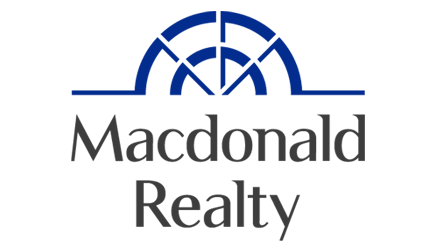
Rent is often a substantial expenditure for businesses. Unfortunately, numerous entrepreneurs struggle when it comes to effectively negotiating their lease for commercial real estate, resulting in unexpected and significant expenses. Failing to be cautious in this regard can significantly impact the profitability of your company.
BDC Business Centre Manager Brett Prikker, who has funded several commercial real estate deals, highlights the astonishing number of businesses that enter into a lease agreement without thoroughly examining its terms.
According to him, people usually sign the lease without questioning, but it’s important to note that leases can often be negotiated.
Moreover, a significant drawback is that numerous enterprises opt to forgo signing a lease and instead rent their premises on a month-to-month basis. By doing so, there is a risk of being swiftly evicted without sufficient notice, resulting in the loss of any investments made towards improving the space. Furthermore, lacking a lease agreement may pose difficulties in obtaining financial support from banks for your business.
Prikker emphasizes the importance of having a lease in place, as it serves as a fundamental measure to safeguard your business and guarantee that you derive benefits from any enhancements you undertake.
Prikker offers valuable advice to enhance your negotiation skills when securing a commercial lease.
A Comprehensive Manual for Acquiring Commercial Real Estate
A detailed manual outlining the sequential process of procuring
Step 1: Assess your business requirements
Before entering into lease negotiations, it is essential to conduct some preliminary research. Start by identifying your company’s present and anticipated future space requirements.
According to Prikker, take a moment to consider your objectives for relocating.
If you are unsure about your immediate requirements, you might want to think about opting for a shorter lease duration, such as two or three years. According to Prikker, although the cost per square foot may be higher for a shorter lease, it provides the advantage of being able to easily terminate the agreement if necessary.
- Make sure to include a lawyer
Including a commercial lawyer in your lease negotiations is crucial. Prikker emphasizes the importance of seeking a lawyer’s opinion at all times. It is advisable to choose a competent commercial lawyer who possesses a thorough understanding of leases. Opting for a general or family lawyer may lead to unforeseen expenses when signing the lease agreement. Given the intricacies involved, it is not uncommon for numerous errors to occur during this process.
- Familiarize yourself with your expenses
Thoroughly examine the additional charges you are requested to cover to ensure that the overall cost aligns with your financial plan. It is also crucial to have a clear understanding of any potential future increments in both the basic rent and additional expenses. Do not hesitate to request modifications if necessary.
- Familiarize Yourself with Lease Choices
The expenses included in a lease can differ significantly depending on the type of lease you choose.
The usual expenses covered in these types of leases consist of utilities, property tax, insurance, upkeep, repairs, and shared area costs like snow removal, cleaning services, landscaping, lawn maintenance, and property management. As a result of this arrangement, the rent is generally lower. The key distinctions among net leases are as follows: the landlord assumes responsibility for all additional expenses. These types of leases are commonly employed in malls and other retail spaces with multiple tenants.
- Examine rental rates in the market
Gain insight into the prevailing rental rates in the area you are contemplating and juxtapose them with the rent proposed by the property owner. Engage in a conversation with a professional real estate agent specialized in commercial properties to obtain current and accurate information regarding lease rates in the market.
- Conduct a thorough property research
Acquire valuable information regarding the property that can greatly assist you during your lease negotiations.
Ensure that the businesses occupying the building and its neighboring establishments are compatible with your own. Check for any competitors in the vicinity. It is important to investigate the amount of traffic the building receives. If other tenants occupy most of the parking spaces, consider if there will be enough space for your needs. In such cases, it might be possible to negotiate lower payments for shared areas if other tenants have significantly more traffic and usage of the building.
Speak with local businesses to gather information about the neighborhood and any potential issues that may impact your company. For instance, if you operate a retail business, understanding local foot traffic patterns and whether the neighborhood is growing or declining could be crucial. Knowledge of recent declines in prospects or market rents within a neighborhood can also serve as leverage when negotiating lease terms more favorably.
Researching the reputation of the landlord is essential to identify any warning signs. You can seek advice from real estate agents or current tenants who may have encountered difficulties with the landlord.
- Request incentives from the landlord for leasing the premises. The landlord might be particularly motivated to attract you as a tenant, especially if the space has remained unoccupied for an extended period. It is typical for landlords to provide two or three months of rent exemption. Additionally, some may even contribute towards a portion of your remodeling expenses or offer financing options throughout the duration of the lease agreement.
According to Prikker, it is advisable to inquire about the incentives they can offer.
- Evaluate the conditions for terminating the agreement
Examine the situations in which either party has the right to end the lease. For instance, can you face eviction solely for failing to pay rent on time? What are the implications if the property gets sold?
In the event of a decrease in sales or a desire to expand into a larger area, what options do you have for terminating your lease? Certain leases may necessitate payment of either the full or a partial amount of the remaining rent. However, it is possible to engage in negotiations to secure more favorable terms.
Additionally, consider the possibility of subletting the premises. In the event of declining sales, subleasing the entire space would enable you to relocate elsewhere without incurring a substantial penalty for terminating the lease.
- Discussing leasehold improvements
Frequently, businesses find the need to refurbish a fresh area to align with their requirements. It is essential to verify if the lease agreement and zoning regulations permit the intended leasehold improvements. Additionally, you have the option to negotiate for a clause that mandates the landlord to compensate a portion or all of your expenses towards leasehold improvements in case they terminate the lease prematurely.
- Ensure a provision for competitors
It is advisable to include a provision in the lease agreement that obliges the landlord to seek your approval before renting any space in the building to a competitor. This can be especially crucial for retailers.
- Consider the terms for lease renewal
The length of time for your commercial property lease can vary from month-to-month to multiple years. It is crucial to comprehend the specific details regarding when and how the lease will be renewed. Additionally, make certain that you have the opportunity to extend the lease at the conclusion of its term, if it holds significance for you. There might be room for negotiation regarding other possibilities, such as having priority in leasing an adjacent unit for expansion purposes.
Conversely, if the rental market experiences a decline, the landlord may offer you a more favorable arrangement upon renewal.
- Take your time before signing
Normally, landlords provide their own lease agreement to potential tenants. It is crucial to thoroughly examine this paperwork and the suggested obligations for both the tenant and landlord.
According to Prikker, I have come across rental agreements in which the tenant neglected to conduct proper research and consequently found themselves accountable for unforeseen expenses or unable to terminate the lease without paying the remaining rent in its entirety. The suggested lease terms are usually not set in stone, as there is typically room for negotiation.

